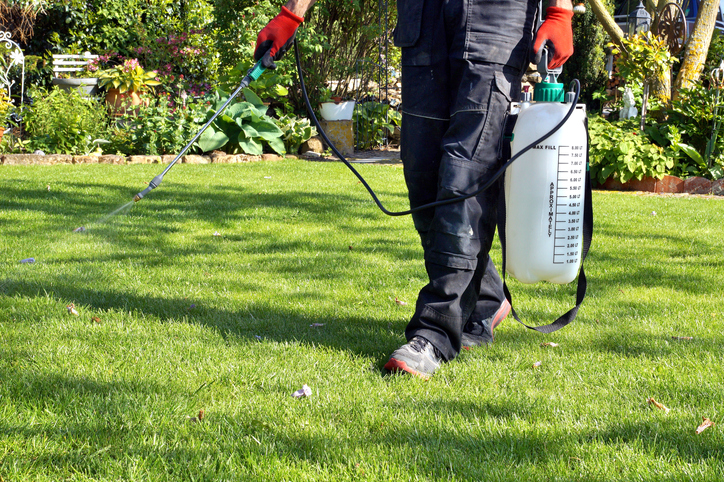No Verdict Yet on Herbicide Toxicity Link

Yet another commonly used toxic herbicide, Paraquat, is in the dock over its alleged effects on human health. Paraquat is used as a “nonspecific” weed and grass killer and is well known right across the U.S., including Mississippi, as an effective herbicide. Unfortunately for those who have used it regularly over the years, its toxicity is alleged to extend to a link to the tragic neural disease, Parkinson’s disease. While litigation is in progress, the Environmental Protection Agency (EPA) has been reluctant to issue a statement blaming Paraquat and its generic brands for causing Parkinson’s.
Unsubstantiated evidence for the health link has been around for the past twenty years and many countries have already banned the use of Paraquat, also known by the brand names Gramoxone, Firestorm, Cyclone, Bonedry, and Helmquat. The growing evidence that the product can cause Parkinson’s and that the link has been deliberately covered up by manufacturers is similar to the sequence of events surrounding the successful litigation against manufacturers of Roundup. Roundup is another popular herbicide, and like Paraquat has a huge vested commercial interest invested in its manufacture and distribution that is fighting like mad to deny the link between use and serious health outcomes. Unlike Paraquat, litigation against the manufacturers of Roundup has already led to successful, albeit hard-won results. Paraquat legal action by Parkinson’s sufferers or their families may follow in the footsteps of those victims of the use of Roundup.
What are the symptoms of Parkinson’s disease?
Sufferers of Parkinson’s disease experience a number of symptoms related to the deterioration of nerve cells, which are no longer capable of producing sufficient levels of an important neurotransmitter, dopamine. Symptoms include;
- Poor balance
- Slow movement
- Stiffness in arms and legs
- Trembling of jaw, face, arms, legs, and hands
Parkinson’s is often related to genetic factors, but inheritance is not necessarily evident in all cases. Certain chemicals that the person has been exposed to over a period of time may also be a causative factor in developing Parkinson’s.
How can someone Develop Herbicide Toxicity?
It is unlikely that a one-off use of the Paraquat would cause enough herbicide toxicity to develop Parkinson’s. Like many diseases caused by dangerous chemicals, the longer the exposure, the greater the chance of developing the disease.
Paraquat has been a commonly used grass and weedkiller for many years. The occupational hazard is most likely to be prevalent in workers who use the herbicide regularly. That includes groundsmen and women, farm workers, gardeners, nursery workers, and landscape workers. Ordinary homeowners may also be at risk if they regularly use one of the branded products based on the product around their home.
It may also be the case that you don’t even need to use Paraquat yourself, but be in close proximity to somewhere where the herbicide is regularly used. One survey suggested that the chance of developing Parkinson’s disease increased by a factor of 75% for those living within 500 yards of a known Paraquat use area. Another study suggested that those whose jobs depended on using Paraquat regularly had twice the chance of developing Parkinson’s disease as those who were not exposed to it.
Paraquat has been banned in 32 other countries
The use of Paraquat has been banned in the European Union and several other countries, but so far the U.S. Environmental Protection Agency (EPA) has resisted calls to ban the use of the herbicide. Instead, it has restricted its use to those people who are trained in its use and have a license to use it.
Manufacturers of Paraquat may have covered up the toxicity of their product
Several different manufacturers of Paraquat now face lawsuits filed on behalf of Parkinson’s sufferers. It has been alleged that some manufacturers have known all along about the link between their product and Parkinson’s but have covered up the evidence. Allegations have also been made that documents have been obtained showing that Syngenta, the manufacturer of Gramoxone, a brand of Paraquat, could have made its product less dangerous but deliberately failed to do so. Syngenta has rejected the claim.
It is important to talk to an attorney if you suspect that your illness is linked to Paraquat
No one should have to suffer the symptoms of Parkinson’s disease, especially if the toxicity of the herbicide could have been reduced or the danger of prolonged use more widely notified. If you have developed Parkinson’s and have been a frequent user of one of the brands of Paraquat, or have been living in an area where the herbicide has been frequently used, talk to an experienced attorney at the Diaz Law Firm in Madison MS to discuss your chance of obtaining compensation. Contact the Diaz Law Firm or call us at 601-607-3456 or toll-free at 800-459-2222.
GET YOUR FREE CASE EVALUATION
